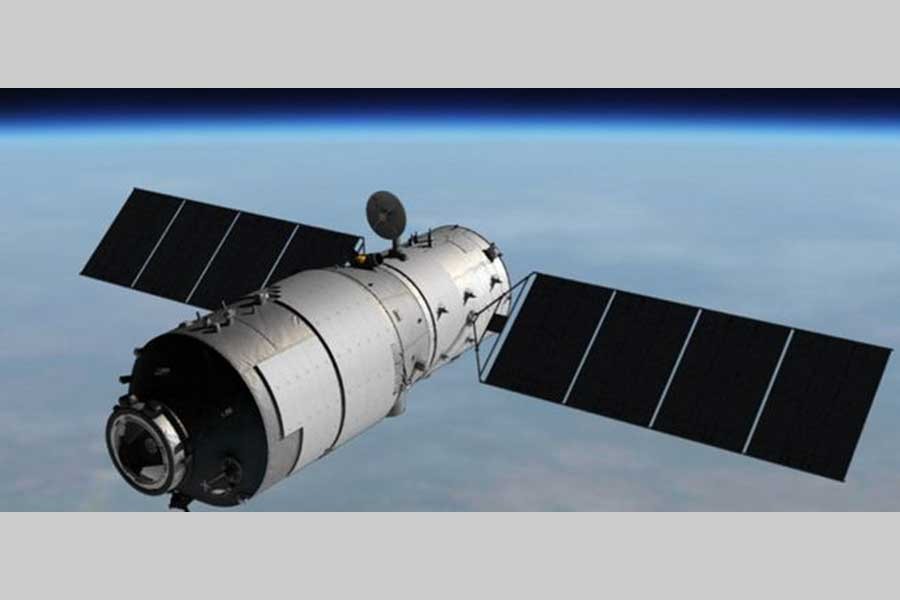Debris from a defunct Chinese space station is seen crashing to Earth on Monday, scientists monitoring it say.
China's space agency said the station will re-enter the atmosphere in the next 24 hours - in line with European Space Agency (ESA) predictions.
The Tiangong-1 was part of China's ambitious space programme, and the prototype for a manned station in 2022.
It entered orbit in 2011 and five years later ended its mission, after which it was expected to fall back to Earth.
The latest projection from the Esa points to re-entry at 07:25 Beijing time (00:25 GMT) on 2 April, although the window is still "highly variable" - stretching from Sunday afternoon to Monday morning.
Most of the station is likely to burn up in the atmosphere but some debris could survive to hit the surface of the Earth.
The China Manned Space Engineering Office said on social media that falling spacecraft do "not crash into the Earth fiercely like in sci-fi movies, but turn into a splendid (meteor shower)".
China confirmed in 2016 that it had lost contact with Tiangong-1 and could no longer control its behaviour, so we don't really know where it will end up.
The European Space Agency (ESA) said re-entry "will take place anywhere between 43ºN and 43ºS", which covers a vast stretch north and south of the equator.
Esa says this means the station could fall anywhere from New Zealand to the midwestern US.
The station is gradually coming close to Earth.
Its rate of descent "will continually get faster as the atmosphere that the station is ploughing through gets thicker," Dr Elias Aboutanios, deputy director of the Australian Centre for Space Engineering Research, told the BBC.
"The station will eventually start to heat up as it gets close to 100km [from Earth]," he says.
This will lead to most of the station burning up and "it is difficult to know exactly what will survive since the makeup of the station has not been disclosed by China".
The station could reach speeds of up to 26,000km/h (16,156mph), reports BBC.


